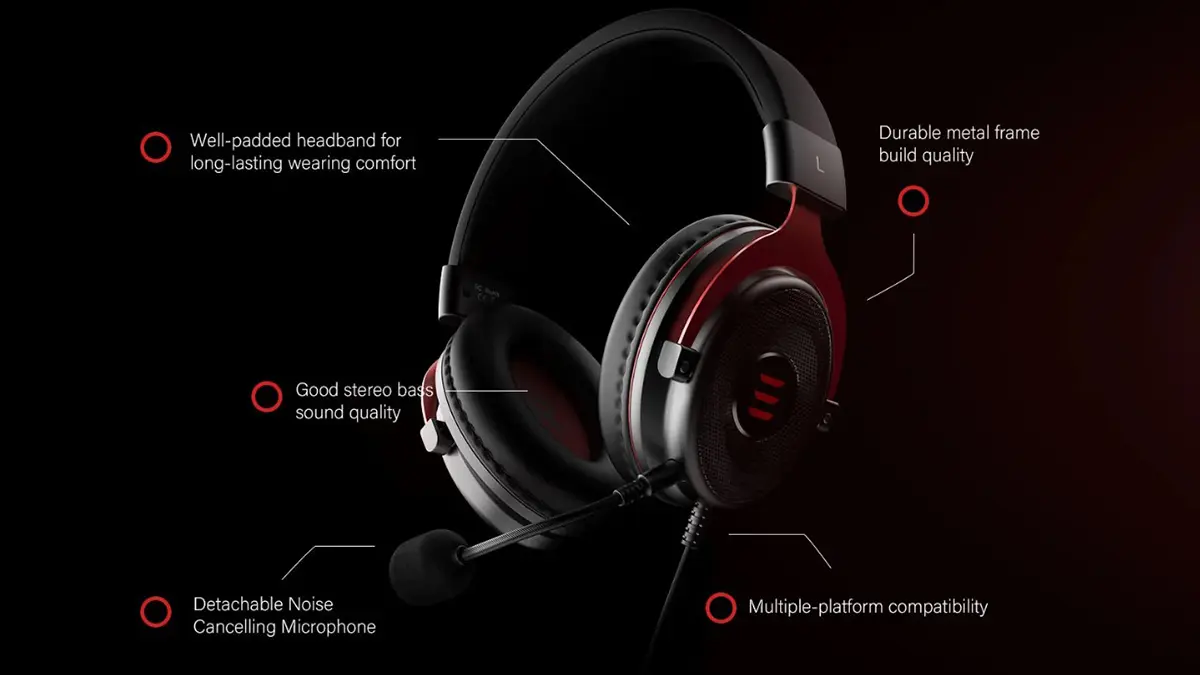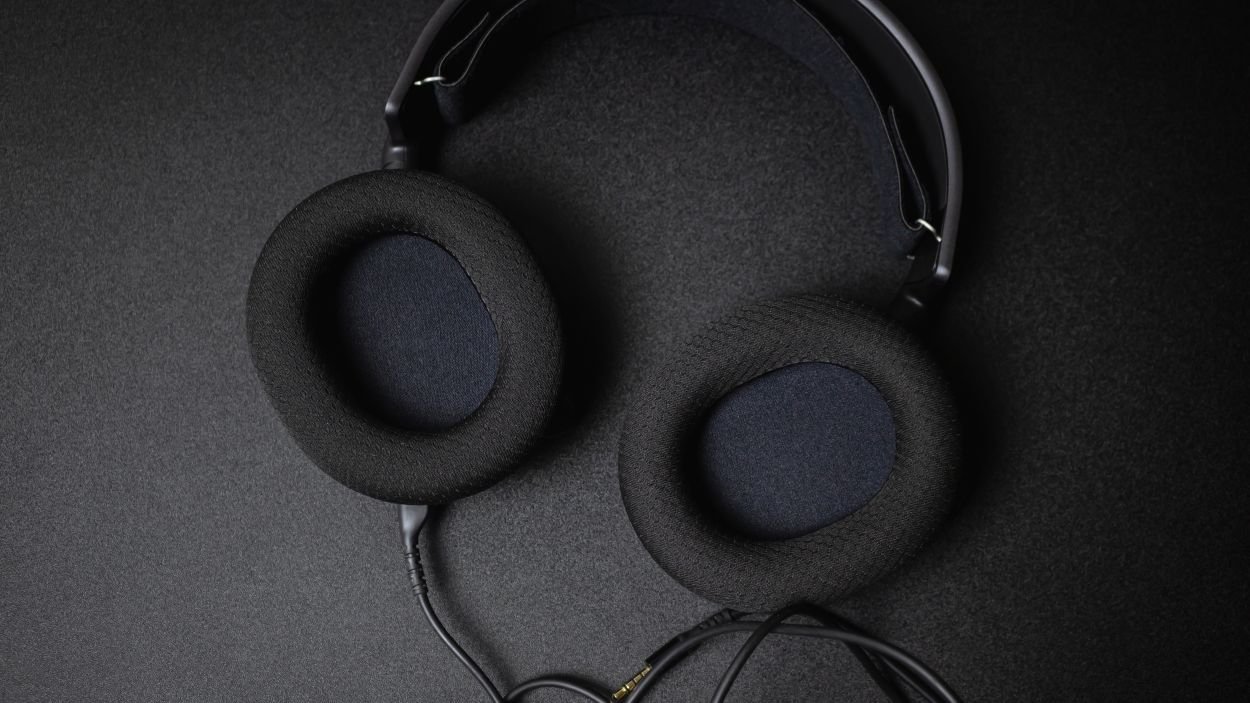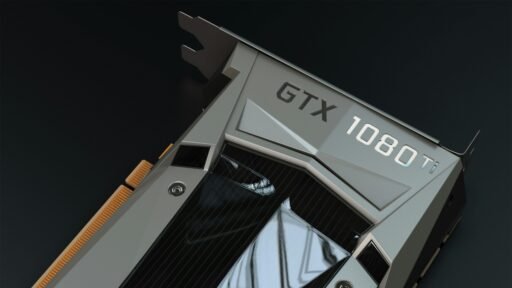Whether you’re playing a fast-paced FPS like Counterstrike or an RPG like Assassin’s Creed, a good headset can make all the difference. Most gamers want clear sound, a reliable mic, and headphones they can wear all day. But with so many options on the market, where do you even start? Don’t worry, we’re here to help. In this guide, we’ll break down all the essential factors to consider before purchasing your gaming headset.
1. Is the Headset Compatible?

First and foremost, you’ll need to pick what type of gaming headset you want. If PC gaming is your major emphasis, a conventional headset with a 3.5mm connector will serve, as they connect effortlessly to most PCs and laptops.
However, console gamers need to be a bit more careful. PC-focused headsets might not play nice with your console and may require extra adapters or converters, affecting your overall experience.
There are also wireless gaming headsets, but they tend to have latency (audio delay) issues, and some audio quality may be lost. Plus, you’ll likely need to spend more compared to wired options. So before you search for a gaming headset online, decide which type you want and for what device.
2. Sound Quality

Sound quality is super important when it comes to gaming headsets. You’ll have to decide between surround sound and stereo. Surround sound (like 7.1 virtual surround) is better for FPS or immersive adventures (think Call of Duty). It gives you this crazy spatial audio experience to pinpoint where enemy footsteps are coming from. And feel those explosions like you’re right there in the middle of it all.
Stereo headsets, on the other hand, are great for music and games where pinpointing sounds isn’t as important. They’re perfect for role-playing games like Elden Ring and The Witcher, or racing games like Forza Horizon.
Don’t forget about frequency response. Get a headset with a wide range (20Hz to 20kHz is good) to get clear highs, rich mids, and that deep, punchy bass. It makes a huge difference in how you experience all those little in-game sounds.
Important Note for Online Purchases: When buying online, it’s challenging to directly test sound quality. Therefore, read reviews from reputable sources and customer feedback to get a sense of how a headset performs. Look for mentions of clarity, balance, and overall soundstage to gauge its suitability for your needs.
3. Mic Quality

Okay, let’s talk mics – because no one wants to sound like they’re talking from a wind tunnel, right? A high-quality noise-canceling mic is essential for crystal-clear voice chat with your teammates, especially if you’re into multiplayer games.
You’ve got two options: active and passive noise cancellation. Both do a decent job of reducing pesky external sounds like your fan, air conditioner, or kids playing outside, but active noise cancellation generally does a better job – although it might cost you a bit more.
You’ll also find two main types of mics when searching for gaming headsets: detachable (or retractable) and fixed. Detachable mics give you more flexibility – great if you want to take your headset on the go. Fixed mics, well, they’re fixed. You can adjust their position a bit, but that’s about it.
4. Comfort and Build Quality

If you spend half your day gaming like me, you know the struggle. After a few hours, headsets can cause pain, irritation, and a lot of sweat, especially if made with cheap materials. So, what should you look out for when buying yours?
- Ear Cup Material: Get ear cups that are soft and comfortable. Prefer memory foam cushions covered in breathable fabric or leatherette. That way, you can game for hours without feeling like your ears are on fire.
- Lightweight Design: A lightweight design means less pressure, so you can have them on for hours without feeling the strain. It’s the enemy in-game that should be giving you a headache, not your headset.
- Adjustability: We all have different head shapes and sizes, so no one size fits all. Get a headset with adjustable headbands and swiveling ear cups to get that perfect fit. That way, you can tweak things mid-game and avoid unnecessary discomfort.
- Wire Length and Quality (for wired headset): Prefer headsets with long, sturdy wires, preferably braided. It eliminates those pesky tangles and keeps your headset working longer. A broken cable can transform a perfectly nice headset into a useless piece of plastic.
5. Connectivity Options

Wireless headsets are gaining popularity these days but let’s be real, wired headsets still hold their own when it comes to stability and versatility.
- Wired Headsets: A wired headset removes latency and battery concerns. Simply put it into the USB or audio jack, and you’re ready to go. If you enjoy fast-paced FPS action, a wired connection is the ideal option. Remember that most USB headsets enable virtual surround sound, but 3.5mm headsets are typically stereo but compatible with almost everything.
- Wireless Headsets: Wireless is definitely convenient. No more tangled wires so you can move around freely while gaming or listening to music. You’ll find options with Bluetooth or dedicated wireless receivers, some even boasting low latency and super-fast connections. But keep in mind, that you might experience the occasional dropout or lag, and you’ll need to keep those batteries charged.
6. Additional Features
Beyond the basics, there are a few extra bells and whistles to enhance your gaming headset experience. Let’s take a look at some of the most common ones to look for when purchasing a gaming headset:
- Surround Sound Software: Some games and headsets might play nice with spatial audio or surround sound right out of the box. But most headset makers offer software that lets you tweak the sound and play with different equalizer settings and sound modes. So, check if the headset comes with a companion software.
- Accessibility Controls: Nobody wants to fumble around mid-game, and that’s where in-line controls come in handy. I’d advise getting a headset with easy access to volume adjustments, mic mute, and play/pause buttons, so you can quickly change settings without interrupting your gameplay.
- RGB Lighting: If you have an RGB gaming setup, consider an RGB headset to complete the look. Plenty of brands offer headsets with customizable RGB lighting to match your aesthetic. Just remember, RGB lighting is purely cosmetic and won’t affect the headset’s performance.
7. Budget: Let’s Talk Money
Okay, let’s face it, budget matters. If you’re a casual gamer, a standard headset with decent audio and a mic will do the job. You’ll be surprised what you can find even in the budget-friendly range, although you may not get the best comfort or fancy features like surround sound.
But if you’re serious about your gaming, I’d recommend spending a bit more and getting brands like Razer, Logitech, and HyperX. These offer some sweet headsets that balance performance and features without breaking the bank. You’ll find both wired and wireless options to suit your style.
And then there’s the high-end. These headsets are the cream of the crop and get you premium sound, top-tier comfort, all the bells and whistles like ANC, and that undeniable “wow” factor. Of course, they come with a premium price tag too.
8. Reviews and User Feedback
Once you finalize a gaming headset, see what other gamers are saying about it. Checking user reviews and hands-on experiences on websites, forums, and videos will give you the best insight on how that headset actually performs in real life.
If the brand has a solid reputation, you’ve had good experiences with them before, and most reviews are positive, you’re probably on the right track. Do consider the longevity and durability aspects, especially when investing in a higher price range and look for reviews that mention how the headset holds up over time, especially if you tend to be a bit rough on your gear.
Choose the Best Headset for You!
Remember, not all games are created equal. So, think about what matters most to you when you’re gaming. If you’re into fast-paced FPS battles, prioritize sound quality, noise cancellation, and low latency. On the other hand, if single-player adventures or RPGs are more your style, a budget-friendly or mid-range headset might be a better fit.
Do your research, keep the basics in mind, and you’ll find plenty of gaming headsets that match your needs. Need a starting point? A quick online search for “headset for PC gaming” or “headset for console gaming” will point you in the right direction. Happy hunting.


